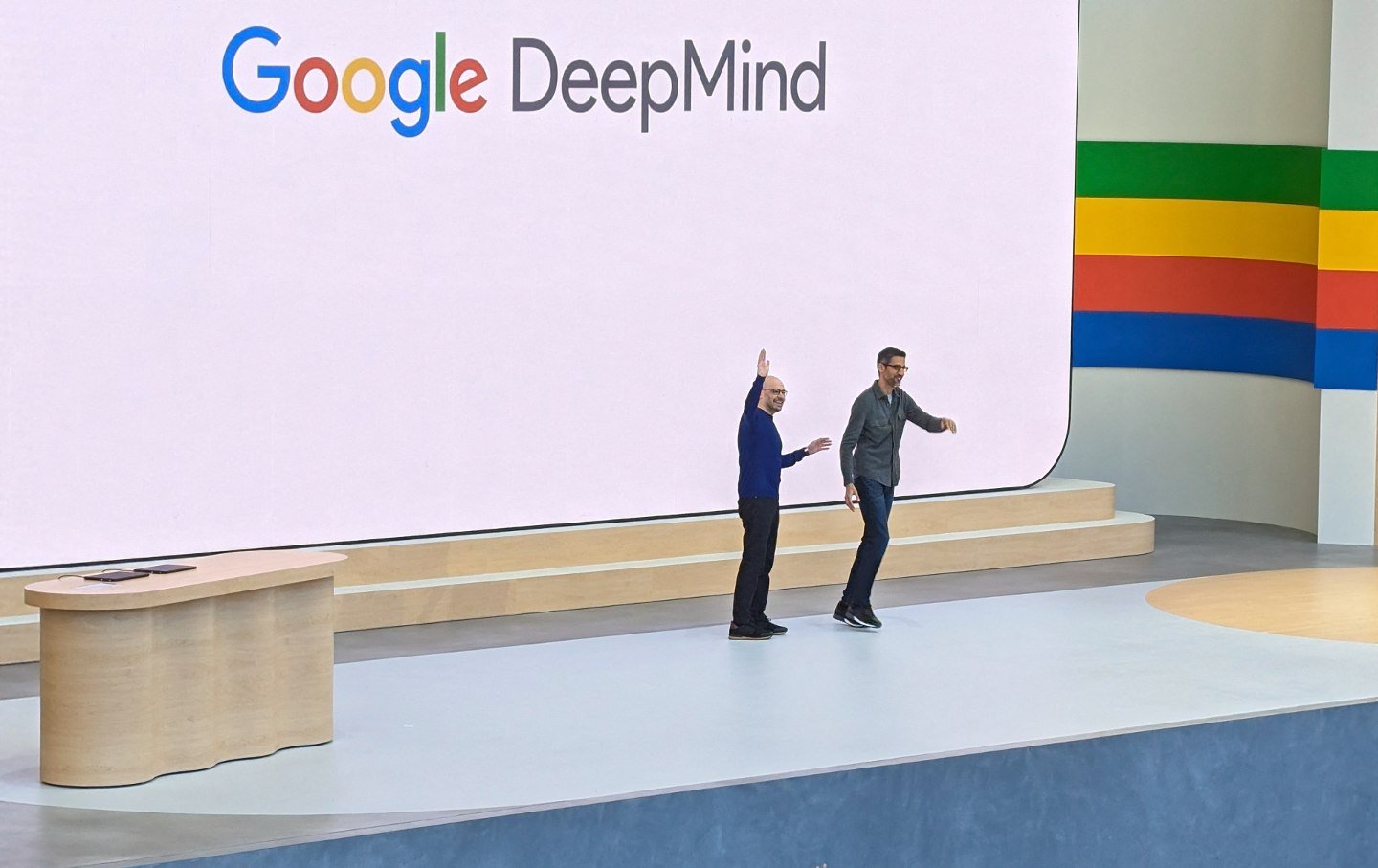“Does SB 1047…spell the top of the Californian expertise {industry}?” Yann LeCun, the chief AI scientist at Meta and one of many so-called “godfathers” of the substitute intelligence growth, requested in June.
LeCun was echoing the panicked response of many within the tech neighborhood to SB 1047, a invoice at present making its means by the California state Legislature. The laws would create one of many nation’s first regulatory regimes particularly designed for AI. SB 1047 handed the state Senate practically unopposed and is at present awaiting a vote within the state Meeting. Nevertheless it faces a barrage of assaults from a few of Silicon Valley’s most influential gamers, who’ve framed it as nothing lower than a demise knell for the way forward for technological innovation.
However now they and their {industry} teams are saying it’s too quickly to manage. Or they need regulation, in fact, however simply not this regulation.
Not one of the main AI corporations help SB 1047. Some, like Google and Meta, have taken unusually sturdy positions towards it. Others are extra circumspect, letting commerce associations communicate for them or requesting the invoice be watered down additional. With such an array of highly effective forces stacked towards it, it’s price what precisely SB 1047 does and doesn’t do. And once you do this, you discover not solely that the fact may be very totally different from the rhetoric, however that some tech bigwigs are blatantly deceptive the general public concerning the nature of this laws.
In response to its critics, SB 1047 can be hellish for the tech {industry}. Amongst different issues, detractors warn that the invoice would make it authorized to jail startup founders for harmless paperwork errors; cede the US AI result in China; and destroy open-source growth. “With out open-source AI, there is no such thing as a AI startup ecosystem and no tutorial analysis on giant fashions. Meta can be fantastic, however AI startups will simply die. Appears fairly apocalyptic to me,” LeCun warned. To make issues worse, AI traders assert that “The invoice is a basic misunderstanding of the expertise” and that its creators haven’t been receptive to suggestions.
However once you look previous this hyperbole, you’ll discover a radically totally different panorama. In actuality, the precise invoice is comprised of very talked-about provisions, crafted with intensive enter from AI builders, and endorsed by world-leading AI researchers, together with the 2 different folks seen as “godfathers” of AI alongside LeCun. SB 1047’s main creator says it received’t do any of the aforementioned “apocalyptic” issues its critics warn towards, a declare echoed by OpenAI whistleblower Daniel Kokotajlo, who helps the invoice and “predict[s] that if it passes, the stifling of AI progress that critics doomsay about will fail to materialize.”
Additionally unlikely to materialize is an AI exodus from the state. SB 1047 applies to anyone doing enterprise in California—the world’s fifth-largest financial system and its de facto AI headquarters.
In response to SB 1047 creator State Senator Scott Wiener, the guts of the invoice requires a set of security measures from builders of “coated fashions”—AI programs bigger and costlier than essentially the most highly effective current ones. The laws would require that these builders present “affordable assurance” that their fashions received’t trigger catastrophic harms, outlined as not less than $500 million in injury or a mass casualty occasion. Wiener says the opposite key provision is that builders should be in a position shut down a coated mannequin within the case of an emergency.
Wiener is way from a burn-it-down leftist. He identifies as professional AI, innovation, and open-source. A latest Politico profile describes Wiener as “a business-friendly reasonable, by San Francisco requirements” and contains criticism from the left for his “coziness” with tech.
These relationships haven’t shielded Wiener from the tech {industry}’s wrath over the invoice. All three of the main AI builders—OpenAI, Anthropic, and Google—are a part of TechNet, a commerce group opposing the invoice (members additionally embody Amazon, Apple, and Meta).
OpenAI hasn’t publicly taken a place on SB 1047, however the firm has formally lobbied the California legislature on it, and a consultant referred me to TechNet and The Software program Alliance, one other opposing {industry} affiliation. And as we’ll recall, Google and Meta have publicly opposed the invoice.
A Microsoft lobbyist informed me the corporate’s formally impartial however prefers a nationwide legislation. TechNet and different {industry} associations argue that AI security is already “appropriately being addressed on the federal stage” and that we must always anticipate in-progress nationwide AI security requirements. They fail to acknowledge that Republicans have promised to dam significant federal laws and reverse Biden’s govt order on AI, the closest factor to nationwide AI regulation and the supply of the forthcoming requirements.
The closest factor to {industry} help has come from Anthropic, essentially the most safety-oriented prime AI firm. Anthropic revealed a “help if amended” letter requesting intensive adjustments to the invoice, essentially the most important of which is a transfer from what the corporate calls “broad pre-harm enforcement” to a requirement that builders create security plans as they see match. If a coated mannequin causes a disaster and its creator’s security plan “falls wanting finest practices or related requirements, in a means that materially contributed to the disaster, then the developer also needs to share legal responsibility…” Anthropic calls this a “deterrence mannequin” that may enable builders to flexibly set security practices as requirements evolve.
Standard
“swipe left under to view extra authors”Swipe →
Wiener says he appreciates Anthropic’s detailed suggestions and that the SB 1047 group is optimistic concerning the “bulk” of their proposals, however he’s reluctant to totally embrace the shift away from pre-harm enforcement.
A researcher at a prime firm wrote to me that their security colleagues “appear broadly supportive” of SB 1047 and “irritated with the Anthropic letter.”
Vox reported that Anthropic’s try and water down the invoice “comes as a serious disappointment to safety-focused teams, which anticipated Anthropic to welcome—not struggle—extra oversight and accountability.”
Anthropic was began by OpenAI staff after they did not oust Sam Altman over security issues in 2021. Anthropic has since taken $6 billion in funding from Google and Amazon, the worth of doing enterprise in capital-intensive AI growth.
These investments affect firm priorities, as Anthropic coverage chief Jack Clark acknowledged to Vox final September, “I’m fairly skeptical of issues that relate to company governance as a result of I feel the incentives of companies are horrendously warped, together with ours.”
However by comparability, the response to the invoice from the AI investor neighborhood makes Massive Tech look downright accountable.
Probably the most coordinated and intense opposition has been from Andreessen Horowitz, generally known as a16z. The world’s largest enterprise capital agency has proven itself keen to say something to kill SB 1047. In open letters and the pages of the Monetary Instances and Fortune, a16z companions and founders of their portfolio have openly lied about what the invoice does.
They are saying SB 1047 contains the “unobtainable requirement” that builders “certify that their AI fashions can’t be used to trigger hurt.” However the invoice textual content clearly states, “‘Affordable assurance’ doesn’t imply full certainty or sensible certainty.”
They declare the emergency shut-down provision successfully kills open-source AI. Nonetheless, Wiener says the supply was by no means meant to use to open-sourced fashions and even amended the invoice to make that clear.
The “godmother of AI,” Fei Fei Li, revealed an op-ed in Fortune parroting this and different a16z speaking factors. She wrote, “This kill change will devastate the open-source neighborhood.” An open letter from lecturers within the College of California system echoes this unsupported declare.
A16z just lately backed Li’s billon-dollar AI startup—context that didn’t make into Fortune.
Probably the most constant and maybe most preposterous narrative is that a16z is championing “little tech” towards an overreaching authorities that’s unduly burdening “startups which might be simply getting off the bottom.” However SB 1047 solely applies to fashions that price not less than $100 million to coach and used extra computing energy than any recognized mannequin but has.
So these startups can be rich sufficient to coach unprecedentedly costly and highly effective fashions, however received’t be capable to afford to conduct and report on primary security practices? Would a16z be completely satisfied if startups of their portfolio didn’t have these plans in place?
Oh, and the champion of “little tech” neglects to say that they’re invested in OpenAI and Fb (the place a16z cofounder Marc Andreessen sits on the board).
SB 1047 has additionally acquired highly effective enemies on Capitol Hill. Probably the most harmful may be Zoe Lofgren, the rating Democrat within the Home Committee on Science, Area, and Expertise. Lofgren, whose district covers a lot of Silicon Valley, has taken a whole bunch of hundreds of {dollars} from Massive Tech and enterprise capital, and her daughter works on Google’s authorized group. She has additionally stood in the way in which of earlier regulatory efforts.
Lofgren just lately took the bizarre step of writing a letter towards state-level laws, arguing that SB 1047 was untimely as a result of “The science surrounding AI security remains to be in its infancy.” Equally an {industry} lobbyist informed me that, “this can be a quickly evolving {industry},” and that by comparability, “the airline {industry} has established finest practices.”
The AI {industry} does transfer quick, and we do stay at nighttime about the very best methods to construct highly effective AI programs safely. However are these arguments towards regulating it now?
This cautious, wait-and-see strategy solely appears to increase to their place on rules. Relating to constructing and deploying extra highly effective and autonomous AI programs, the businesses see themselves in an all-out race.
Within the West, self-regulation is the established order. The one important Western necessary guidelines on basic AI are included within the sweeping EU AI Act, however these don’t take impact till June 2025.
All the foremost AI corporations have made voluntary commitments. However general, compliance has been lower than excellent.
The meltdown in response to SB 1047 is proof of an {industry} that’s “allergic to regulation as a result of they’ve by no means been meaningfully regulated,” says Teri Olle, director of Financial Safety California, a invoice coauthor.
Opponents of SB 1047 are keen to border it as a radical, industry-destroying measure pushed by fears of an imminent sci-fi robotic takeover. By shifting the dialog towards existential danger, they intention to distract from the invoice’s particular provisions, which have garnered sturdy help in a number of state-wide polls.
Consultant Lofgren writes that the invoice “appears closely skewed towards addressing hypothetical existential dangers.”
Nonetheless, coauthors Wiener, Olle, and Sneha Revanur, founder and president of Encode Justice, all informed me they have been way more targeted on catastrophic dangers—a bar far under full human extinction.
It’s true that nobody actually is aware of if AI programs might change into highly effective sufficient to kill or enslave each final individual (although the heads of the main AI corporations and essentially the most cited AI scientists have all stated it’s an actual chance). Nevertheless it’s very arduous to concurrently argue, as many tech boosters do, that AI can be as essential as the economic revolution, but additionally that there’s no danger AI programs might allow catastrophes.
Three main AI specialists and a “founding determine” of web legislation revealed a letter endorsing the invoice, arguing that “we face rising dangers that AI could possibly be misused to assault important infrastructure, develop harmful weapons, or trigger different types of catastrophic hurt.” These dangers, they write, “might emerge inside years, slightly than a long time” and are “possible and important sufficient to make security testing and common sense precautions vital.”
Wiener says he would like “one sturdy federal legislation,” however isn’t holding his breath. He notes that, other than the TikTok ban, Congress hasn’t meaningfully regulated expertise in a long time. Within the face of this inaction, California has handed its personal legal guidelines on knowledge privateness and web neutrality (Wiener authored the latter).
Given this, Olle says, “All eyes are on Sacramento and Brussels within the EU to actually chart a path for the way we must always appropriately regulate AI and regulate tech.” She argues that SB 1047 is about extra than simply regulation—it’s concerning the query of “Who decides? Who decides what the protection requirements are going to be for this very highly effective expertise?” She observes that, at present, these choices are being made by a small group of individuals—so few that they might “slot in a minivan”—but they’re making selections with “huge societal impression.”
Wiener represents San Francisco and, consequently, has borne a big private and political price by shepherding SB 1047, says somebody engaged on the invoice: “You don’t have to like [Wiener] on all the pieces to comprehend that he’s only a cussed motherfucker.… The quantity of political ache he takes on that is simply unbelievable.… He has simply misplaced quite a lot of relationships and political companions and people who find themselves simply extremely livid at him over this. And I simply suppose he truly thinks the dangers are actual and thinks that he has to do one thing about it.”
Opponents assert there’s a “huge public outcry” towards SB 1047 and spotlight imagined and unsubstantiated harms that may befall sympathetic victims like lecturers and open-source builders. Nonetheless, the invoice goals squarely on the largest AI builders on the earth and has statewide fashionable help, with even stronger help from tech staff.
In the event you scratch the floor, the fault traces change into clear: AI’s capitalists are defending their perceived materials pursuits from a coalition of civil society teams, staff, and the broader public.
Can we rely on you?
Within the coming election, the destiny of our democracy and basic civil rights are on the poll. The conservative architects of Undertaking 2025 are scheming to institutionalize Donald Trump’s authoritarian imaginative and prescient throughout all ranges of presidency if he ought to win.
We’ve already seen occasions that fill us with each dread and cautious optimism—all through all of it, The Nation has been a bulwark towards misinformation and an advocate for daring, principled views. Our devoted writers have sat down with Kamala Harris and Bernie Sanders for interviews, unpacked the shallow right-wing populist appeals of J.D. Vance, and debated the pathway for a Democratic victory in November.
Tales like these and the one you simply learn are important at this important juncture in our nation’s historical past. Now greater than ever, we want clear-eyed and deeply reported impartial journalism to make sense of the headlines and type reality from fiction. Donate right now and be part of our 160-year legacy of talking fact to energy and uplifting the voices of grassroots advocates.
All through 2024 and what’s probably the defining election of our lifetimes, we want your help to proceed publishing the insightful journalism you depend on.
Thanks,
The Editors of The Nation
Extra from The Nation
Since taking workplace in August 2022, Colombia’s President Gustavo Petro has pursued an formidable agenda—with blended outcomes.
Gabriel Hetland
They’ve been lionized, focused, exploited, and oppressed for many years. And so they have tales to inform.
Nevin Kallepalli
Former Trump adviser Stephen Miller is making an attempt to distance himself and his group from Undertaking 2025. (Portray impressed by Philip Guston’s KKK Work.)
OppArt
/
Colleen Quinn
Operating as an outspoken supporter of a ceasefire in Gaza, Omar dramatically elevated her Democratic main victory margin. Shouldn’t we be paying extra consideration?
John Nichols
The rising visibility and energy of Indigenous actions have created monumental potential for basically altering our world in a optimistic vogue.
Aviva Chomsky


